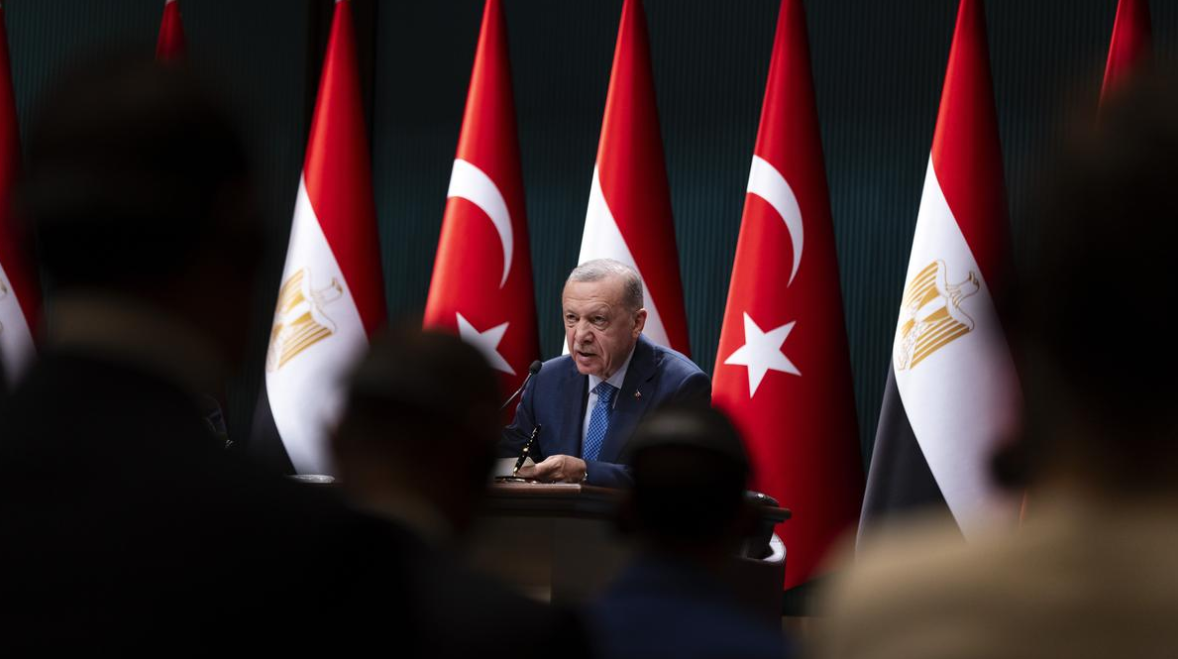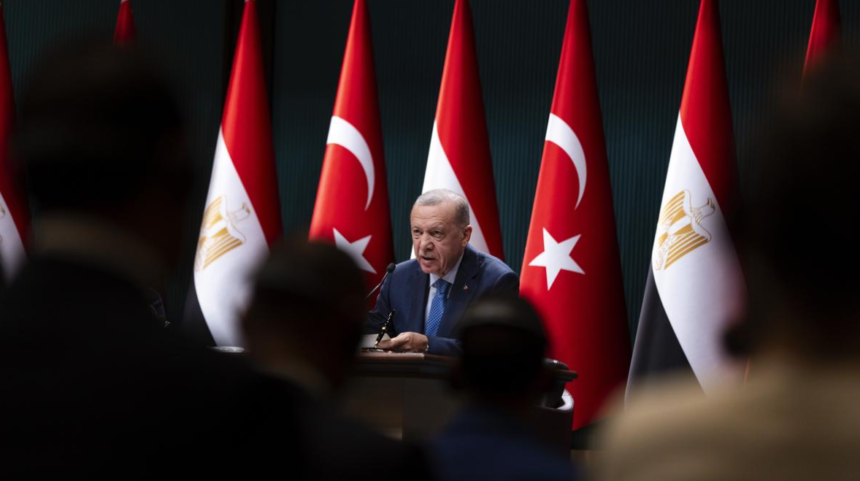Islamic Alliance In a significant political development, Turkish President Recep Tayyip Erdogan has called for an Islamic alliance to counter what he describes as Israel’s growing threat of expansionism. Erdogan’s statement comes amid recent efforts by Turkey to improve its diplomatic relations with Egypt and Syria. This call for a united Islamic front against Israel reflects Turkey’s strategic positioning in the Middle Eastern geopolitical arena and highlights the complex interplay of regional politics, historical grievances, and international diplomacy.
Erdogan’s rhetoric and actions underscore a broader strategy to consolidate Turkey’s influence in the region and assert its role as a leading voice in the Islamic world. The call for an alliance against Israel is not only a diplomatic maneuver but also a reflection of the shifting dynamics in Middle Eastern politics. This article delves into the implications of Erdogan’s call, the context of Turkey’s recent diplomatic efforts, and the potential impact on regional and global geopolitics.
1. Context of Erdogan’s Call for an Islamic Alliance
President Erdogan’s call for an Islamic alliance against Israel is rooted in the longstanding tensions between Turkey and Israel, as well as broader regional conflicts involving the Islamic world. Turkey and Israel, once close allies, have experienced deteriorating relations in recent years due to a range of issues, including the Israeli-Palestinian conflict, Turkey’s support for Palestinian causes, and diplomatic disputes.
Erdogan’s rhetoric reflects a growing sentiment among many Islamic nations that Israel’s policies towards Palestinians and its regional actions pose a significant threat. The Turkish President’s call for a unified Islamic response is a strategic move aimed at rallying support from other Muslim-majority countries to address what he perceives as Israeli expansionism and aggression.
2. Turkey’s Diplomatic Efforts with Egypt and Syria
In recent years, Turkey has taken several steps to improve its relations with Egypt and Syria, two key players in the Middle Eastern geopolitical landscape. These efforts are part of a broader strategy to strengthen Turkey’s regional influence and build a coalition of countries that can collectively address common challenges.
2.1. Turkey-Egypt Relations
Turkey and Egypt have had a contentious relationship since the 2013 ousting of Egyptian President Mohamed Morsi, who was a close ally of Erdogan. The coup, led by General Abdel Fattah el-Sisi, marked a turning point in relations between the two countries. Erdogan’s support for Morsi and his criticism of Sisi’s government led to diplomatic tensions and a severing of ties.
However, in recent years, there have been concerted efforts by both countries to mend fences. Diplomatic talks have been initiated to address mutual concerns and explore areas of cooperation. These efforts include discussions on regional security, economic partnerships, and collaboration on issues of mutual interest. The rapprochement with Egypt aligns with Turkey’s broader strategy of building alliances to counterbalance perceived threats, including those posed by Israel. 
2.2. Turkey-Syria Relations
Turkey’s relationship with Syria has also been complex, marked by periods of cooperation and conflict. The Syrian Civil War, which began in 2011, has significantly impacted relations between the two countries. Turkey has been involved in various aspects of the conflict, including supporting opposition groups and conducting military operations in northern Syria.
Recent diplomatic efforts between Turkey and Syria have focused on addressing security concerns and exploring avenues for cooperation. Turkey’s engagement with Syria is driven by its interest in stabilizing the region, managing the flow of refugees, and countering the influence of other regional actors. Improving relations with Syria is seen as a strategic move to bolster Turkey’s position in the Middle East and build a coalition of countries that can collectively address regional challenges.
3. Erdogan’s Vision for an Islamic Alliance
Erdogan’s call for an Islamic alliance against Israel is rooted in his broader vision of strengthening Turkey’s role as a leading power in the Islamic world. This vision includes advocating for the rights of Palestinians, opposing Israeli policies, and promoting a united front among Muslim-majority countries.
3.1. Advocacy for Palestinian Rights
One of Erdogan’s key priorities has been to advocate for Palestinian rights and highlight the plight of Palestinians in the face of Israeli policies. Turkey has consistently voiced support for the Palestinian cause and has condemned Israeli actions that are perceived as harmful to Palestinian interests. Erdogan’s call for an Islamic alliance reflects his commitment to addressing the Israeli-Palestinian conflict through a collective and united approach.
3.2. Opposition to Israeli Policies
Erdogan’s rhetoric against Israel is also driven by opposition to Israeli policies and actions in the region. Turkey has been vocal in criticizing Israeli settlement activities in the West Bank, military operations in Gaza, and other actions that are viewed as violations of international law and human rights. By calling for an Islamic alliance, Erdogan aims to mobilize support from other Muslim-majority countries to challenge Israeli policies and assert a unified stance against perceived injustices.
3.3. Islamic Alliance Promoting a United Islamic Front
Erdogan’s vision for an Islamic alliance involves promoting unity among Muslim-majority countries to address common challenges and threats. This vision includes fostering collaboration on issues such as regional security, economic development, and humanitarian assistance. By building a coalition of Islamic nations, Erdogan seeks to enhance Turkey’s influence in the region and position it as a leading voice in addressing global and regional issues.
4. Potential Impact on Regional and Global Geopolitics
Erdogan’s call for an Islamic alliance against Israel has significant implications for regional and global geopolitics. The formation of such an alliance could reshape the dynamics of Middle Eastern politics and influence international relations in several ways.
4.1. Regional Realignments
The formation of an Islamic alliance against Israel could lead to realignments in regional alliances and partnerships. Countries that share Erdogan’s concerns about Israeli policies may be inclined to join the coalition, leading to a shift in the balance of power in the Middle East. This realignment could impact existing alliances and influence regional dynamics, including relationships with the United States, the European Union, and other global powers.
4.2. Impact on the Israeli-Palestinian Conflict
A united Islamic front against Israel could impact the Israeli-Palestinian conflict by increasing pressure on Israel to address Palestinian grievances and engage in peace negotiations. The coalition’s collective stance on the conflict could lead to renewed diplomatic efforts and potentially influence the international community’s approach to resolving the conflict.
4.3. Global Reactions and Diplomacy
Erdogan’s call for an Islamic alliance is likely to draw reactions from global powers and international organizations. The formation of such an alliance could lead to increased diplomatic efforts by global actors to address the underlying issues and manage the potential consequences of the coalition’s actions. The response from countries like the United States, the European Union, and other international stakeholders will be crucial in shaping the future dynamics of the region.
5. Challenges and Opportunities for the Alliance
While the call for an Islamic alliance presents opportunities for increased cooperation and solidarity among Muslim-majority countries, it also faces several challenges.
5.1. Diverse Interests and Objectives
One of the challenges in forming an Islamic alliance is the diversity of interests and objectives among Muslim-majority countries. Different countries may have varying priorities, perspectives, and strategies regarding the Israeli-Palestinian conflict and regional issues. Finding common ground and aligning interests may require significant diplomatic efforts and negotiations.
5.2. Regional Conflicts and Tensions
Existing regional conflicts and tensions may pose challenges to the formation and effectiveness of the alliance. Issues such as sectarian divides, geopolitical rivalries, and historical grievances could impact the coalition’s ability to work cohesively and achieve its objectives. Addressing these challenges will be crucial for the success of the alliance.
5.3. International Diplomacy and Engagement
The success of the alliance will also depend on its ability to engage with the international community and garner support for its goals. Building diplomatic relationships and securing backing from global powers and organizations will be essential for advancing the alliance’s agenda and addressing regional challenges.
6. Conclusion
President Erdogan’s call for an Islamic alliance against Israel represents a significant development in the Middle Eastern geopolitical landscape. The move reflects Turkey’s strategic positioning, its commitment to advocating for Palestinian rights, and its vision of strengthening Turkey’s role as a leading power in the Islamic world.
The formation of such an alliance could have far-reaching implications for regional and global geopolitics, potentially reshaping alliances, influencing the Israeli-Palestinian conflict, and impacting international diplomacy. While the call for unity presents opportunities for increased cooperation and solidarity, it also faces challenges related to diverse interests, regional tensions, and international engagement.
As Turkey continues to navigate its diplomatic efforts with Egypt, Syria, and other regional actors, the success of the alliance will depend on the ability to address these challenges and build a cohesive and effective coalition. The international community will be closely watching the developments, as the outcomes of this initiative could have significant implications for the future of the Middle East and global politics. ALSO READ:- Pope Francis’ Historic Visit to Papua New Guinea: A Journey of Faith, Humanity, and Cultural Exchange 2024





